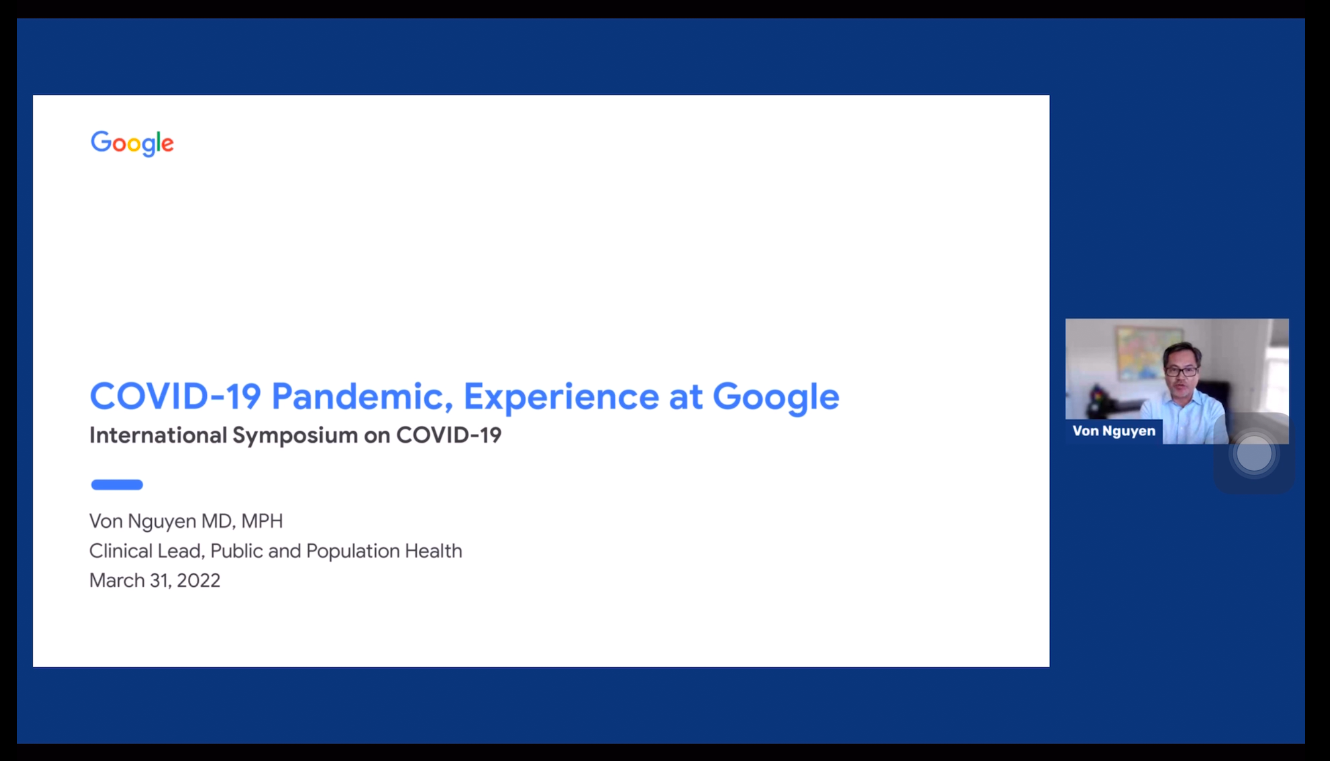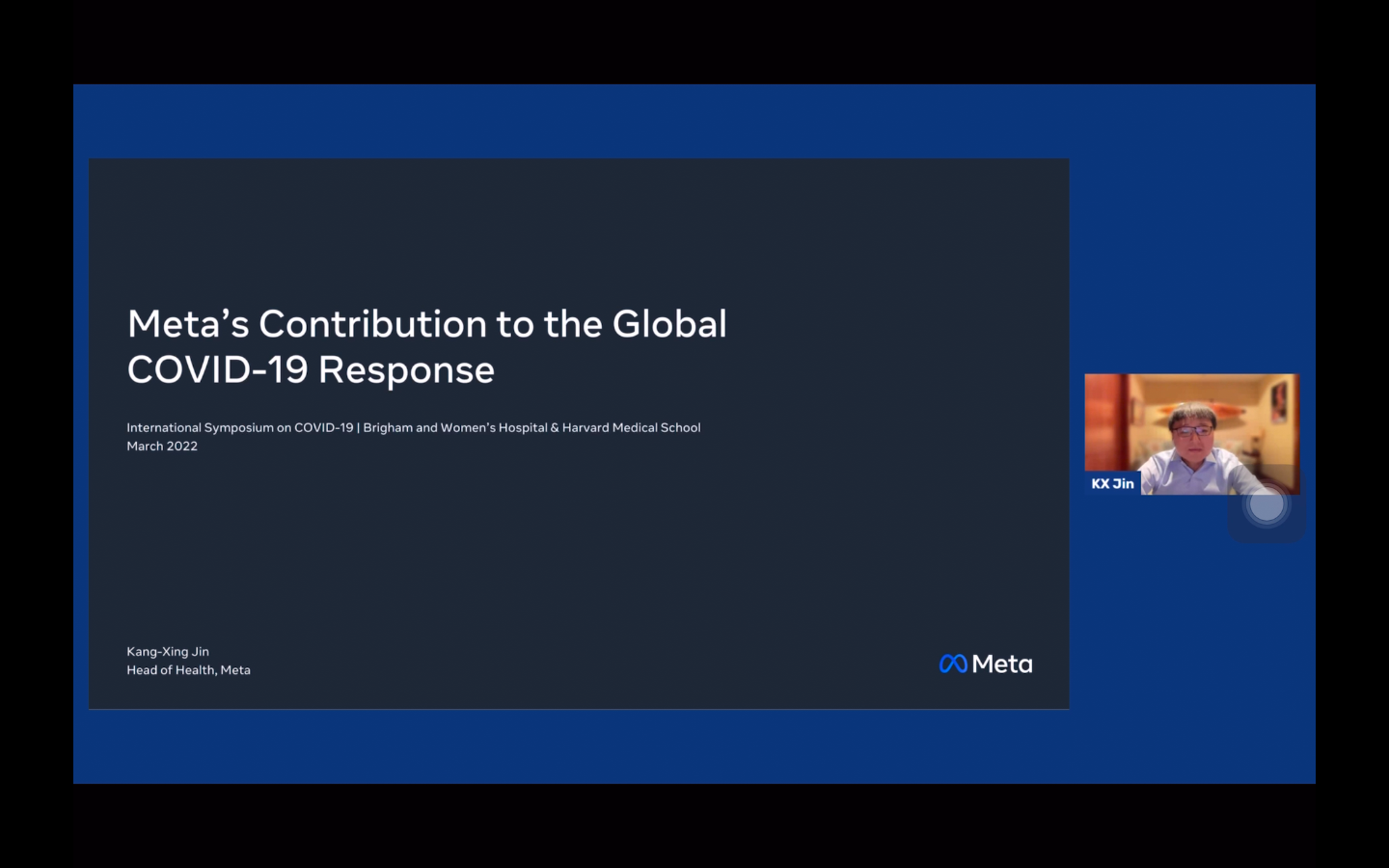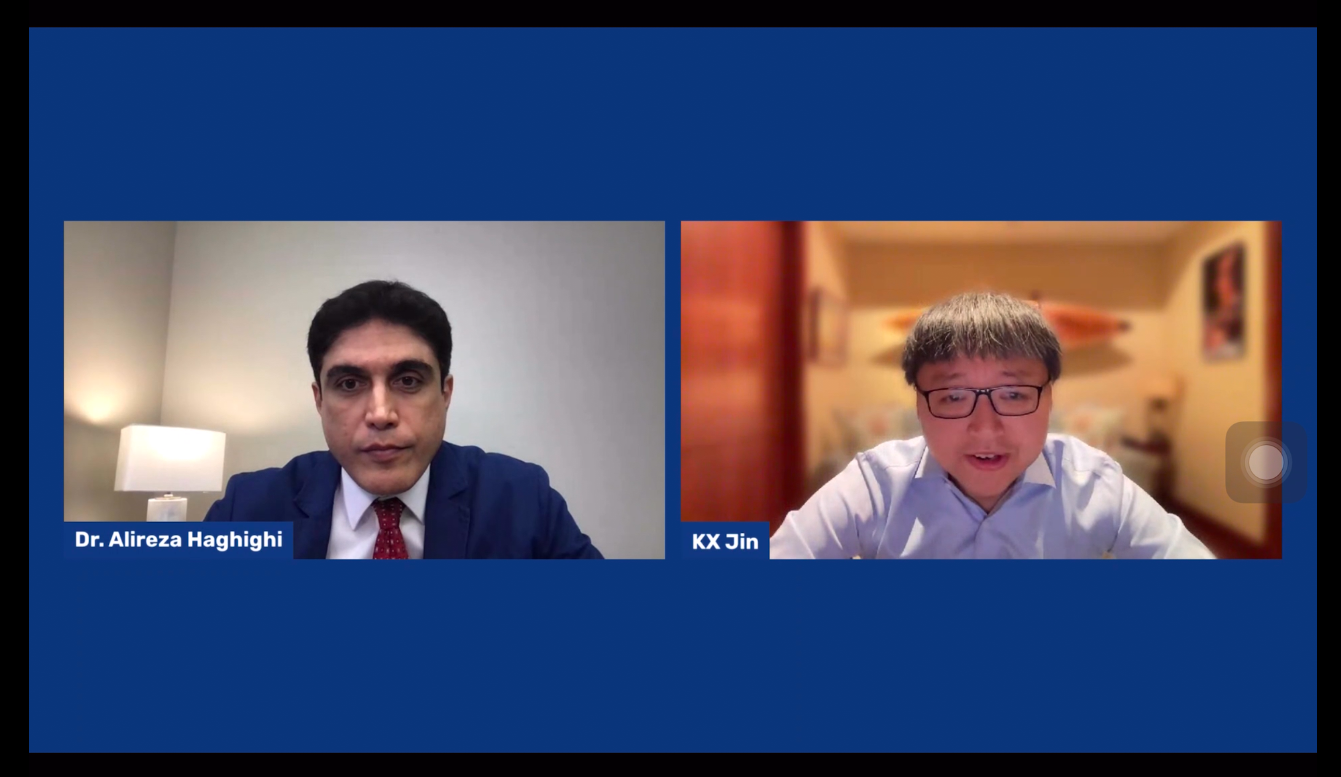How Do Tech Giants Like Google and Meta Improve Our Understanding of Public Health During Pandemic
The stay-at-home and social distancing mandates of the COVID-19 pandemic were hugely supported by online platforms such as Google and Facebook which helped people access information. Government institutions and public agencies such as WHO could enlist their help to collaborate and provide information to people. While IT is slowly making inroads into healthcare, the pandemic provided a unique opportunity for IT companies to develop methods to collect meaningful data, inform policies and build better models to improve our understanding of public health.
In the Harvard International Symposium on COVID-19, hosted by the Harvard Medical School and Brigham and Women’s Hospital in March 2022, a session that focused on the impact of IT and social media in combating the COVID-19 pandemic, experts from Google and Meta (formerly Facebook) shared their learnings from navigating services and support during the pandemic. They talked of the partnerships they built, the impact they had at the local and global levels to inform public policies, interventions to tackle misinformation and the possibility of leveraging infrastructure built for COVID-19 for other global health concerns.
Related Article: An interview with Harvard Medical School Experts – Sudden Death in Infants Could Have a Genetic Basis
Google Built Products and Services for Public Health Emergencies
Dr. Von Nguyen, Clinical Lead of Population Health at Google shared his views on how the pandemic has reshaped our understanding of public and population health. Since early 2020, COVID-19 and related terms have been the most searched topics and the need for information has persisted for over 2 years.

Dr. Von Nguyen, Clinical Lead of Population Health at Google
He spoke of Google’s criteria to determine how content is validated and authoritative to avoid misinformation. Based on WHO and National Academy of Science guidelines, Google relies on science-based, objective and transparent sources of information, while accounting for evolving changes in risks, prevention and other limitations.
He showcased examples of highlighted, verified and usable content from authoritative sources with appropriate labels and related videos on YouTube to maximise returns from Google searches. To increase the reach of accredited information, Google developed protocols to test which framings of topics generated user engagement to ensure users are directed to correct sources of information. Based on click-through rate as a measured parameter, they found that descriptive framing of information was better than content that emphasized reason.
One of the hallmarks of Google’s contribution to fighting the Covid-19 pandemic has been sharing anonymised data to help inform healthcare providers and researchers with large scale data. To check if social distancing policies result in a meaningful way to reduce disease transmission, Google developed Community mobility reports, to share the mobility of communities across time and space for 135 countries to specific locations such as parks, transit stations, workplaces, and recreational sites and residences. At the end of the pandemic, they can be used to check economic trends and people’s average mobility, social impact on different populations and assess the effectiveness of pandemic prevention measures at the community level.
Google’s global coverage enabled them to address pandemic coverage in over 200 countries in more than 70 languages. Citing India as an example, Dr. Nguyen shared Google’s local actions such as vaccination locations made available in regional languages in association with the Ministry of Health. Real-time vaccination scheduling and booking were made possible in India and the US.
| When asked how governments could help IT platforms in the future or vice versa, Dr. Nguyen noted that global collaboration is key. Google’s collaborations with local governments and WHO’s initiative to put together tech companies to assist in pandemic action helped the global community unite at the first step of the emergency. He emphasised that it is imperative to listen to governments to get as much as local context to develop methods useful for local communities. |
Social Media Can Do More Than Connecting People in Times of Healthcare Crises
Kang-Xing Jin, Head of Health at Meta shared Meta’s experience with COVID-19. As a social platform, Facebook enables people and organizations to connect and when scaled up, the impact can be meaningful, especially in emergencies. He spoke of using Meta products to address health needs such as Whatsapp in India to efficiently organise blood donation drives during the second wave of infection.

Kang-Xing Jin, Head of Health at Meta
He remarked that Meta’s contribution to the COVID-19 effort could be classified as access to information, enabling support groups and evaluating the impact of policies and mandates. In the early stages of the pandemic, Facebook helped people find services, support and relevant information. With the COVID-19 Information Center, Meta could serve over 2 billion people in over 180 countries with continuous updates from regional health centres. To promote vaccination, Facebook designed profile frames of vaccination status to encourage friends and families of vaccinated individuals to consider getting a vaccine. WhatsApp emerged as a useful tool to set up helplines, and vaccine information/update centres updated by government health workers. In Indonesia and India, vaccine scheduling and booking on WhatsApp were leveraged by many hospitals and centralised healthcare ministries. Facebook enabled peer groups, advocacy and community support to help people deal with loss, navigating unprecedented issues with job search, fundraising and other issues.
Meta to Support Public Health with Its Platforms
To support public health decision-makers, Meta’s ‘Data for Good’ program provided health organizations with access to healthcare services across entire cities to aid vaccine delivery. Facebook enabled surveys to study health behaviours at a global scale. For example, trends of mask-wearing in different countries helped establish the relevance of policies such as mandates and public behaviour and implement policies elsewhere in the world. School reopening could be evaluated by researchers, looking at associations between cases and in-person schooling to assess risk and appropriate mitigation policies.
Keeping with the digital way of living, Facebook enabled a large scale study to test if reduced holiday travel was successful in limiting disease transmission with 12M participants on Thanksgiving and 23M participants on Christmas sharing their location and other health data on a Facebook-based clinical study. Similarly, social media could be leveraged to assess trends in vaccine hesitancy, people’s willingness to get back to the workplace and other indicators.
Facebook ads promoting mask-wearing, reaching over 20 million people, saw a gradual increase in public attitude to masks. To combat misinformation, Meta removed over 25 million pieces of unauthenticated data. Meta’s products have been updated to indicate if the content is highly shared. For example, WhatsApp limits the number of times a message can be forwarded.

Dr. Alireza Haghighi, the host and Kang-Xing Jin
Jin noted that the pandemic has established that online platforms can be easy, cheap and meaningful methods of communication, engagement and education. It accelerated improvements in data quality and misinformation. Successful tools from COVID-19 can be generalized to other global health topics such as child immunisation or mental health. For example, South Africa utilises WhatsApp as a central clinical option for pregnant women to help them with monitoring their health, understand risks and better prepare for childbirth and early infancy. Currently, 2 million expecting mothers are enrolled in the program.
| Built over a decade of working across public and private partnerships, Meta was able to contribute to mediating an alliance for advancing health online with participation from WHO, CDC among others to realise the shared goal of community healthcare. His recommendations for healthcare service providers were to ensure fast, accurate and updated messaging at the systemic level, trust and empathy for individuals to address concerns. |
©www.geneonline.com All rights reserved. Collaborate with us: service@geneonlineasia.com









